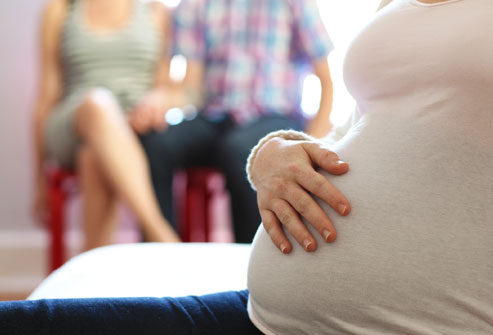
The principal of a Catholic secondary school in south Dublin has called on the Department of Education to take it over and for its patron, the Edmund Rice Schools Trust (ERST), to step aside. The principal made the comments in response to a decision by the patrons of the school, the Christian Brothers, to sell some of its playing fields to a housing developer in order to raise monies for a government redress scheme. “This is a golden opportunity for the State to take ownership of these schools. They say school lands are being transferred to the State. Why not take the buildings too?”, said Edward Melley, principal of Clonkeen College in Deansgrange. Local TD, Richard Boyd Barrett, echoed the call and said it is “outrageous that this and future generations of students could be punished and pay for the Christian Brothers’ crimes against past generations. The Minister needs now to intervene and take the school from the trust to secure it and its facilities for the future.”

Emergency motions designed to prevent schools from selling off lands will come before Dún Laoghaire-Rathdown councillors on Monday night. The move comes after two Catholic schools had announced they were selling playing fields to housing developers. The land is currently zoned for residential use and the motion would change it to non-residential use so as to make it worthless to developers. The move has cross-party support with councillors from Fine Gael, Fianna Fail, Sinn Fein and the Green party coalescing around similar motions to give effect to the policy.

Hostility to the Catholic Church in Irish society has risen to the level of persecution says Bishop of Kilmore, Leo O’Reilly. Speaking at the welcome Mass for the relics of Saint Oliver Plunkett, Bishop O’Reilly said people from abroad are often astonished at the antipathy to the Church here in Ireland and, while it is unlike the violence of penal times, it is nonetheless a real, if subtle, kind of persecution. “It takes the form of gradual exclusion of Church people or activities from the public space. There is denigration of religious beliefs, practices and institutions on radio, television and on social and other media. There is often a focus on bad news about the Church to the almost total exclusion of any good news”, he said. It even acts as a deterrent to vocations such that anyone would need “real courage, deep faith and strong conviction to offer oneself as a candidate for the priesthood or religious life in a culture as hostile to faith as ours”.

Children whose parents have a bad divorce are more likely to have a weakened immune system, a scientific study suggests. Researchers at Carnegie Mellon University exposed 201 healthy adults to a cold virus and found that those whose parents separated and were not on speaking terms were more than three times as likely to develop a cold compared to those whose parents stayed together or split up amicably. “Our results target the immune system as an important carrier of the long-term negative impact of early family conflict,” said Professor of Psychology, Sheldon Cohen. “They also suggest that all divorces are not equal” he said, implying that parents who kept in touch after splitting up could protect their children’s health.

Stones were thrown through the window of a mosque in Galway while people were at prayer, and in Kerry the wall of an ancient Cathedral was defaced with lewd graffiti in the latest incidents of anti-religious bigotry. Over 100 people were in the Mosque on Monday night when rocks smashed windows, leaving the people inside “terrified”. The Imam of the Mosque said he thought the attack was a reaction to the terrorism in London over the weekend. Meanwhile, in Kerry, ancient Ardfert Cathedral was daubed with obscene graffiti. The historic site had been the seat of the Diocese of Ardfert from 1117 and is dedicated to Saint Brendan. Locals are said to be “outraged” by the vandalism.

Two years after Ireland redefined marriage to make the requirement for sexual complementarity obsolete, the Irish Times is reporting the rise of a new kind of ‘marriage’ in the US that makes the requirement of a second person obsolete: solo-marriage or marrying one’s own self. There may be a ceremony where a person walks up the aisle, in the company of friends and family, makes vows to himself and then throws a party, but it is not yet recognised as marriage in civil law, so it confers no rights or responsibilities. Irish Times columnist, Padraig O’Morain, comments that he “cannot help seeing self-marriage as, on some level, a form of weirdness”, adding somewhat ruefully, “Perhaps I’m just old-fashioned and out of touch with the times”.

Sister Stanislaus Kennedy has spoken of her shock at the portrayal of the Sisters of Charity during the recent controversy surrounding the National Maternity Hospital and likened their depiction in the media to ‘elder abuse’. “A lot of the stuff that came out in the media about us was very hurtful. There was a lot of misunderstanding and misrepresentation. It was very distasteful.” Sr Stanislaus, the founder of Focus Ireland and the Immigrant Council of Ireland, is herself a Sister of Charity. She said her order had been unfairly portrayed as “a power-grabbing congregation” and “a group of old ladies who didn’t know what they were doing”, adding, “In another context, this would come under elder abuse”.

A major new study on gender and families reveals the costs paid by women as they attach ever greater importance to work and career in their personal lives. The book, Changing Gender Roles and Attitudes to Family Formation in Ireland, is authored by Dr Margaret Fine-Davis of the Department of Sociology at Trinity College Dublin. Among other findings, Dr Fine-Davis said, “Women are caught between their biological clocks and their wish to continue actively in the labour market. It is apparent these factors are contributing to delays in couple formation, delays in marriage, postponement of first birth, an increase in the proportion of single people and an increase in childlessness.” The costs are a decreasing population and diminishing social capacity to support an ageing population, and also a “greater proportion” of people with poorer psychological wellbeing. The book is set to be published on Wednesday.

The Minister for Children and Youth Affairs, Katherine Zappone, has confirmed that the definition of ‘child’ used by her department does “not extend to the unborn”. She made the statement in response to a parliamentary question from Tipperary South TD, Mattie McGrath, who commented that the exclusion of all unborn children regardless of gestational age from the definition of ‘child’ borders on the incredible. “I think most people will be absolutely stunned and appalled to hear the Minister for Children apply such a discriminatory and disingenuous meaning to the definition of the word ‘child’. . . . Is Minister Zappone seriously suggesting that a full term child minutes or seconds away from birth is not a child or a human person?,” he said.
The Minister claimed this exclusion is consistent with the UN Convention on the Rights of the Child (UNCRC), but Deputy McGrath pointed out that the Preamble to the UNCRC states that “the child, by reason of his physical and mental immaturity, needs special safeguards and care, including appropriate legal protection, before as well as after birth”. This means, “that a child is to be considered a ‘child’ before birth and that a pre-natal child is entitled to legal protection,” he said. “I would appeal to Minister Zappone to reconsider her Departments failure to accept a basic human truth; that a real human ‘child’ is in existence long before birth, and that this is confirmed by the very Convention that she says refutes this,” concluded Deputy McGrath.

A new study, published by the Journal of Health Economics, shows that recent cuts in funding for contraception and sex education aimed at teenagers in 149 local authority areas in the UK coincided with a fall in teenage pregnancy rather than an increase. To their surprise, the researchers found that authorities who made “bigger cuts saw relatively larger decreases in both birth and abortion rates among teenagers”. The research suggests that the State’s efforts to teach adolescents about sex and make access to contraceptives easier may have encouraged risky behaviour rather than curbed it.